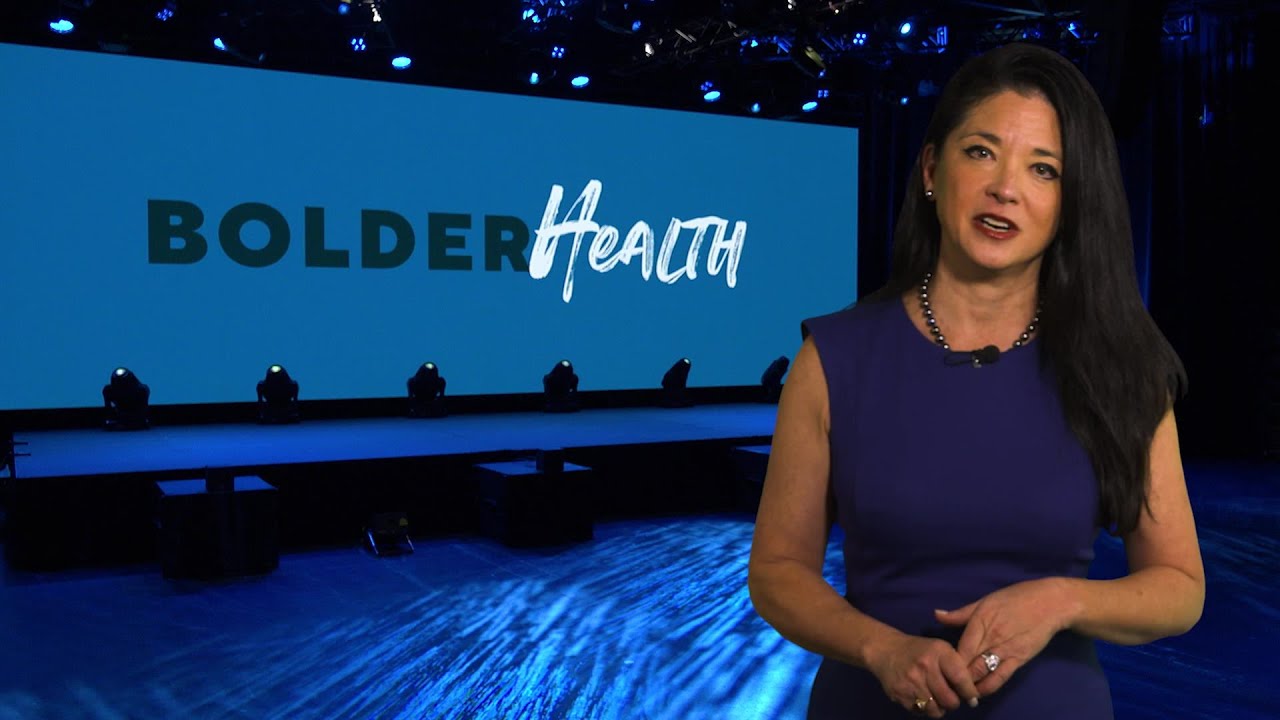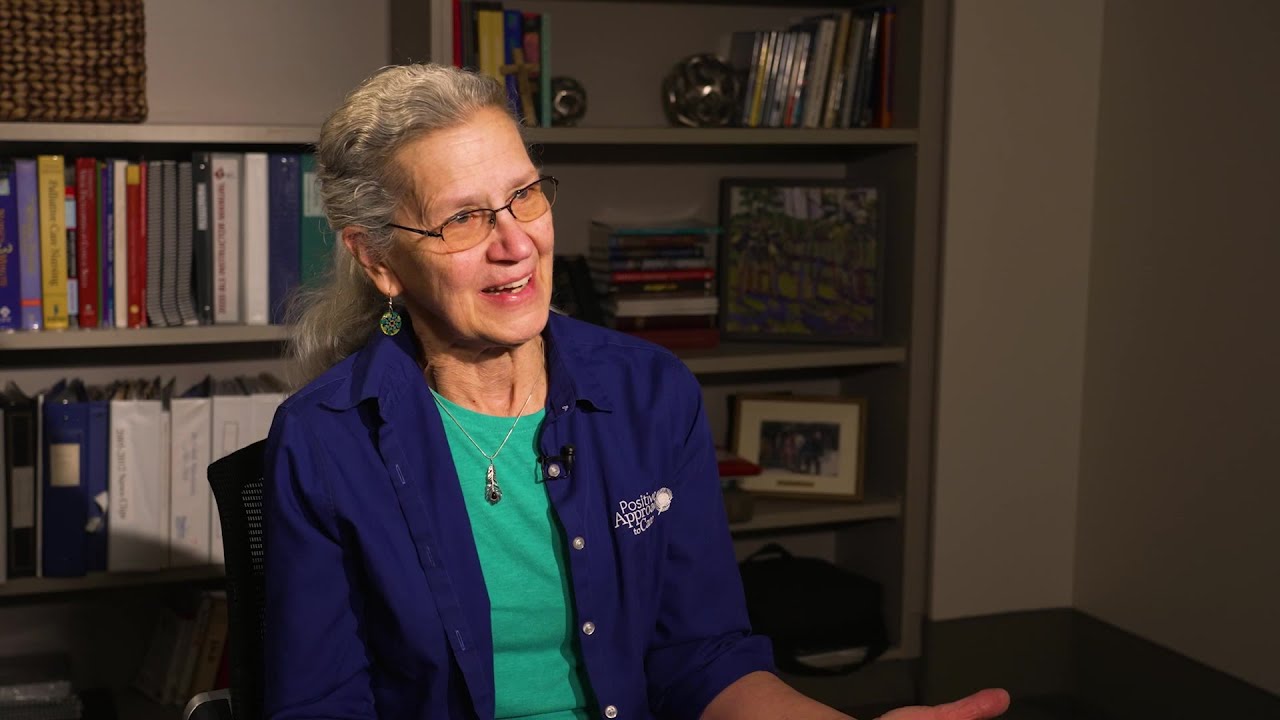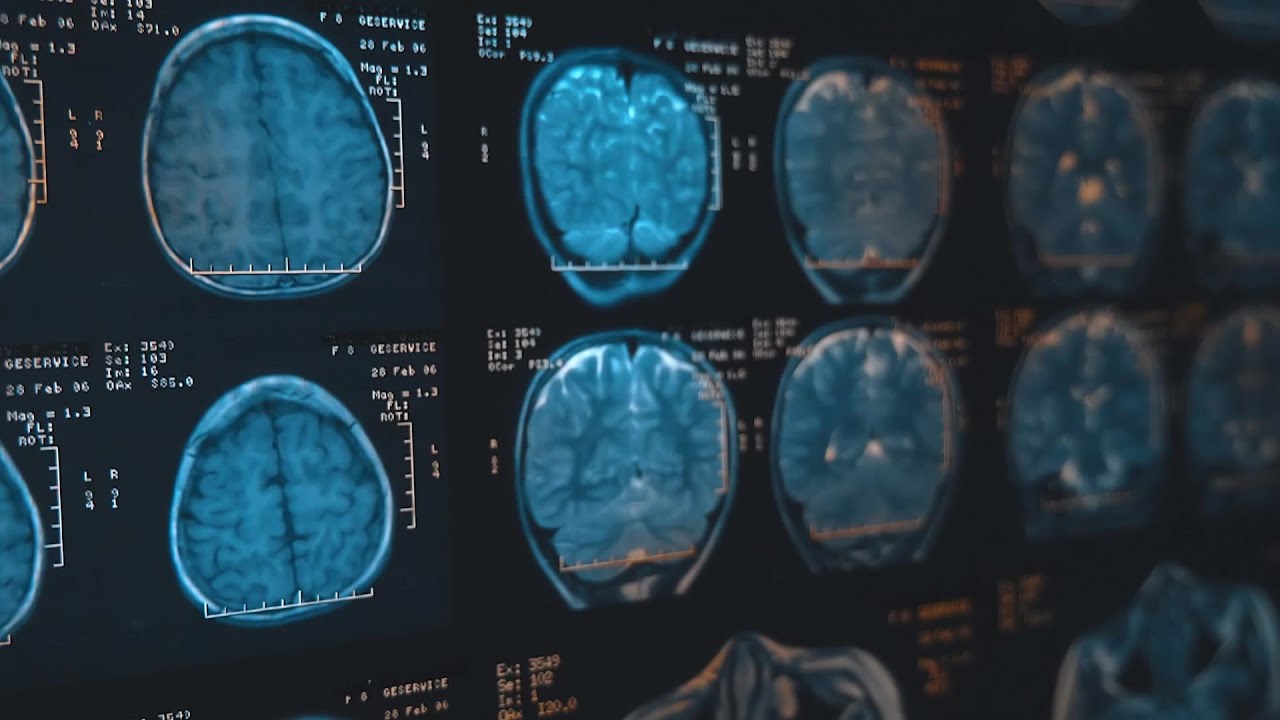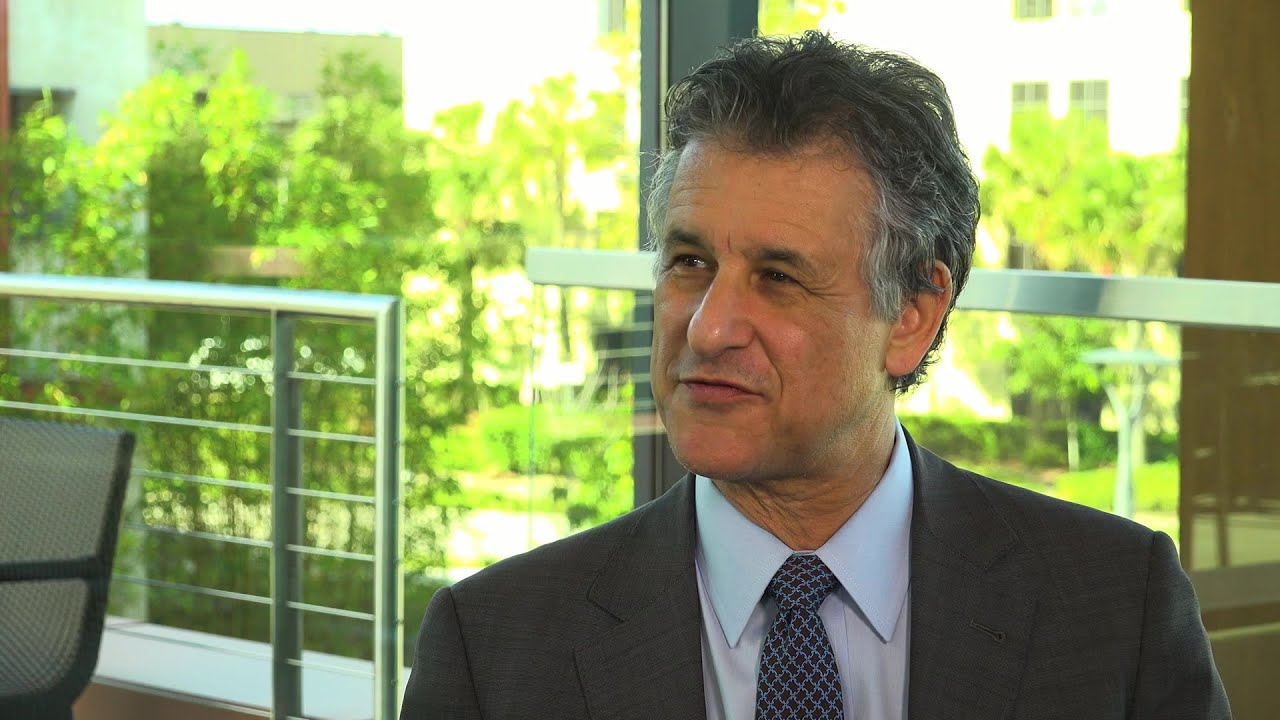It’s the conversation that no one wants to have but everyone needs to have. “Everybody’s at risk. This disease does not discriminate,” Dr. Brandon Lenox said. “I think the cost of not effectively addressing this issue will be unbearable,” added former U.S. Congresswoman Val Demings.
“This issue” is Alzheimer’s disease and related dementias. By 2050, its global economic burden is projected to exceed a staggering 10 trillion dollars. The burden to individuals and families is incalculable. Nowhere is the potential impact greater than in the state of Florida. Florida has the nation’s highest percentage of adults 65 and older and accounts for 10% of all Alzheimer’s cases in the U.S.
Public health officials are sounding the alarm, investment in research is exploding and companies like K2 Medical Research in Central Florida are working around the clock to inform and educate those in their community about major advancements in prevention and treatment.
Lenox, along with Sean Stanton, is a co-founder of K2 and the two have dedicated their lives to finding treatments and, hopefully, a cure for Alzheimer’s. “One in three people over the age of 65 now die with the disease,” Stanton said. “That’s unacceptable.”

There is still no cure for Alzheimer’s, but there is more hope than ever. Unfortunately, there’s a major problem. As individuals, we don’t want to think about it, talk about it, or test for it.
“They tell you straight forward, I don’t want to know if there’s something serious waiting for me, when it should be the opposite,” said Dr. Sheila Baez-Torres, a specialist in neurodegenerative diseases and K2 Medical Director of Diversity. “People feel like there is no hope, but the hope is there,” adds Stanton. “There are now multiple medications now that either slow or reverse the progression.”
The key to preserving brain health and preventing Alzheimer’s is lifestyle modification, and the key to slowing its progression is early detection. Research has revealed that the disease begins to occur almost two decades before the onset of symptoms.
Recent advances in both research and technology have led to multiple blood tests that can detect the presence of proteins that lead to Alzheimer’s 10 to 20 years prior to experiencing symptoms. New treatments make these years an unprecedented window of opportunity.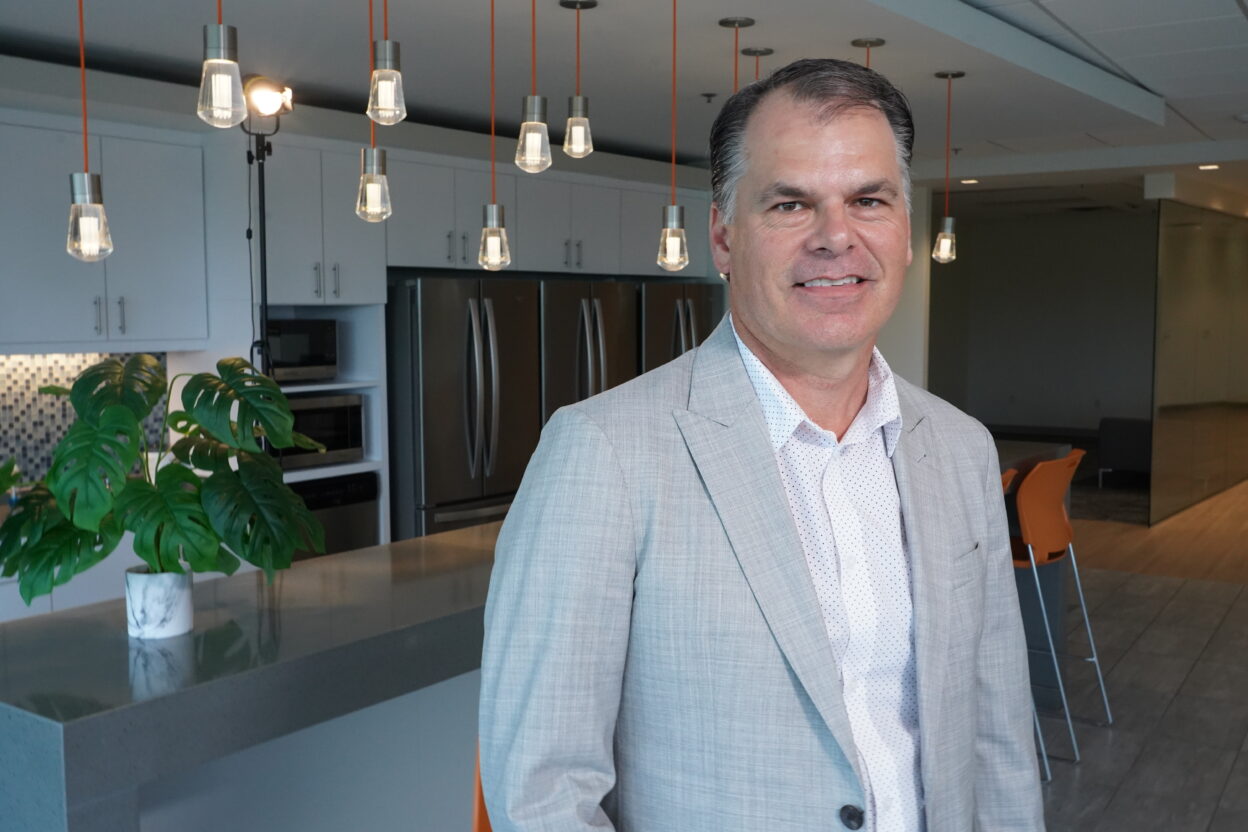
“We now have the potential to treat that disease early with the hopes of preventing symptoms from ever occurring,” Lenox noted. “The science is there. The treatments are there. And now, it’s a lot of patients and community acceptance of being screened for early risk factors for Alzheimer’s disease,” says Lenox.
For the most part, these screening tests and treatments are only available in clinical trials, which today are safe and highly controlled with multiple levels of oversight. “The level of care in a clinical trial is exceptional,” said Lenox. “It’s like tomorrow’s treatments today,” adds Stanton. “We have access to treatments that physicians will be using clinically in five years or 10 years.”
Clinical trials are not just for those who have been diagnosed. “We have studies for patients that have memory loss and for patients that don’t have memory loss but are interested in knowing that if they’re at risk for Alzheimer’s disease and, if so, how can they prevent it,” said Baez-Torres.
“We are entering a new area of clinical trials around Alzheimer’s disease where we’re focusing on prevention,” Lenox said. “We’re Identifying patients who are healthy and asymptomatic. They’re living their best life, but they’re at risk because they’re in that 10-to-20-year period where the pathology of the disease is there but they have no signs and symptoms of the disease.”
“One of the reasons I enrolled in a trial is because my father passed away from complications of Alzheimer’s,” shared clinical trial participant Jeffrey Pickard Beadles. “When I found out about the study, I said, ‘Yeah, let’s find out if I might have any factors that could lead to having that myself.’”
Miriam Rosado enrolled in a study because her family has a history of Alzheimer’s, and she wanted to be proactive. “The gene is in the family because my grandmother had Alzheimer’s. So, we want to take care of ourselves. I started the infusion last month and I’m on my second one now, and I feel much better. My mind already works a little better. My sister wants to do this, too and so does my cousin because it’s in the family.”
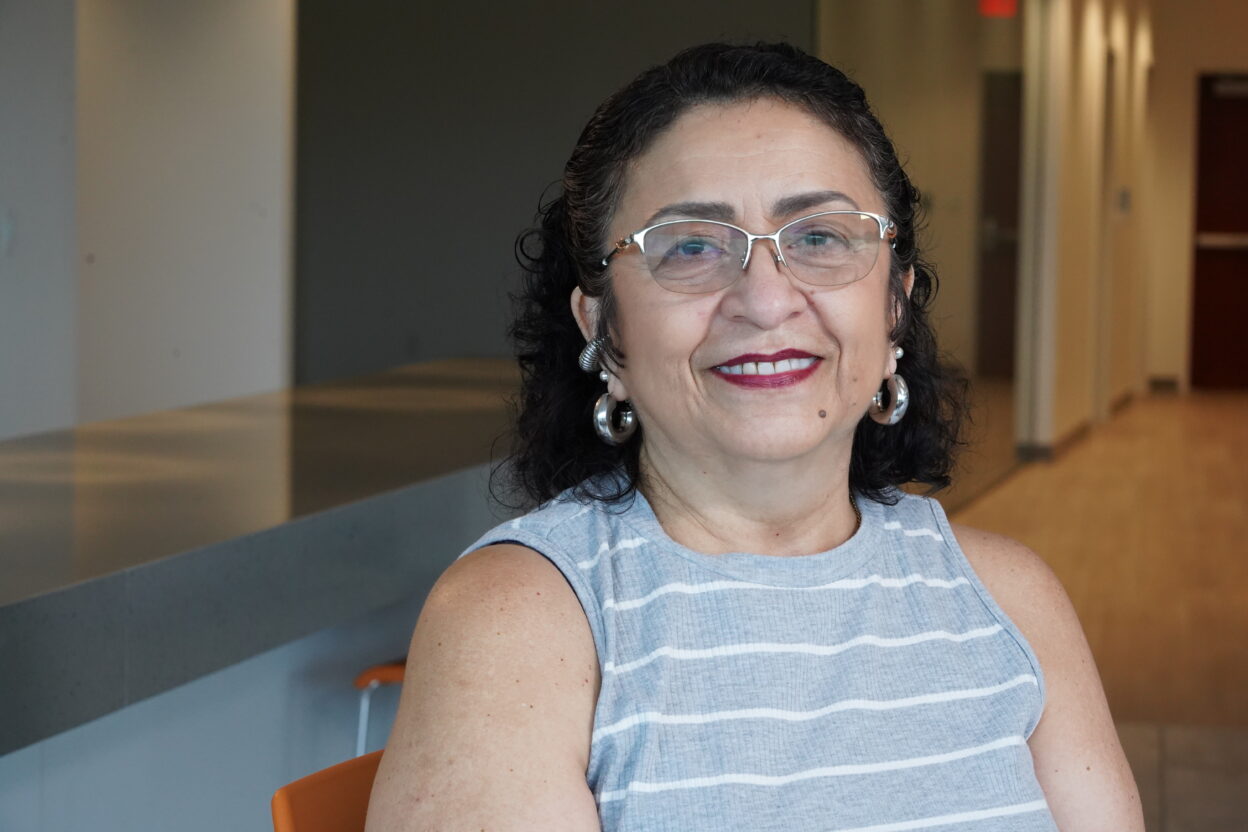
Rapid advancements in medicine, science, and technology have all led to a growing number of promising treatments providing a great deal of hope where there was none not long ago. “You just have to be bold enough to take the test and see your healthcare provider on a regular basis, and so I try to do that,” said Orange County Mayor Jerry Demings. “This is the first clinical trial I’ve ever joined and I’m very satisfied with it,” Ralph Maresco said. “There’s help out there. And that’s the important thing. There’s help out there.”
Other than fear, there are several issues preventing more widespread testing and treatment. “We understand that the basic barriers to participation in clinical research are transportation, accessibility, language and trust,” noted Sandra Torres, executive director for patient engagement at K2. “So, we knew that we had to do something to be able to reach our diverse communities.”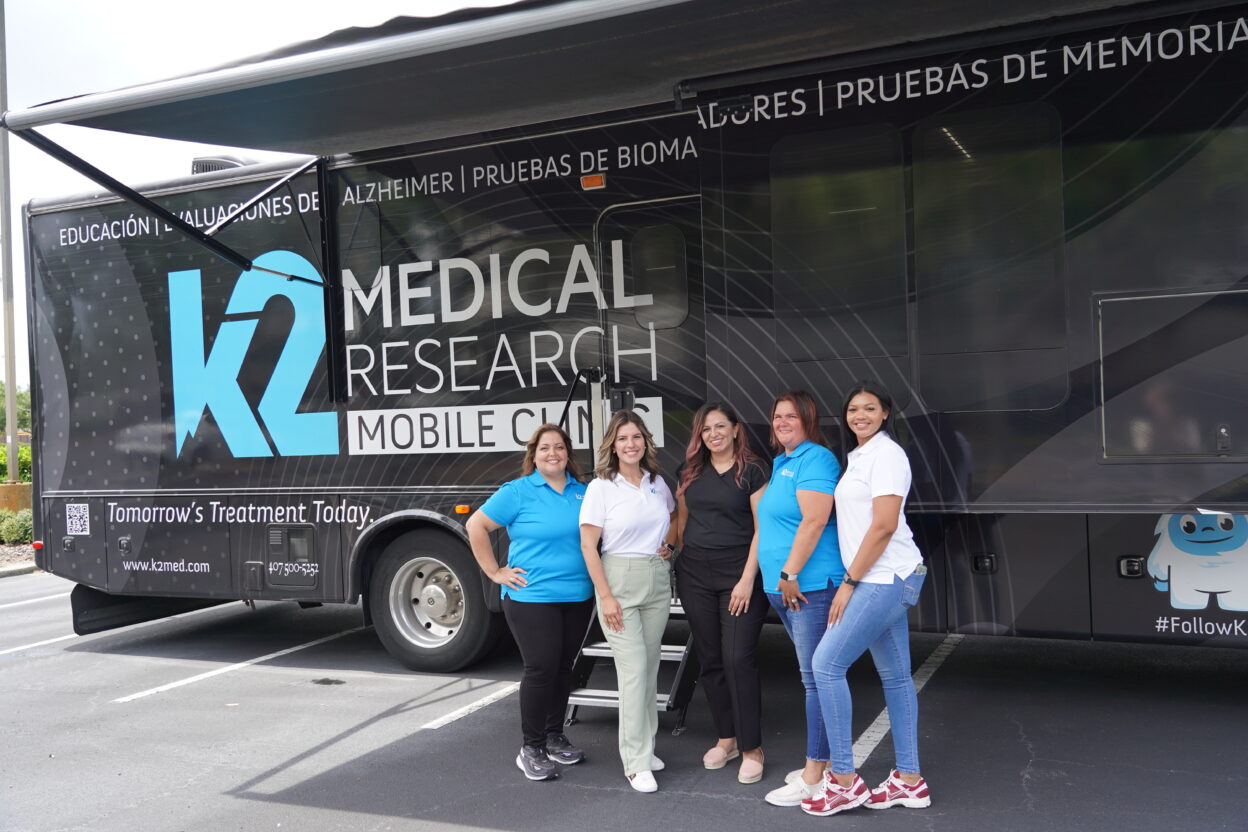
K2 solved that problem with, Wanda, a state-of-the-art mobile unit that takes education, opportunity and hope into every community it serves. “The purpose of our team and Wanda is to bring valuable research to underserved communities, helping teach them about not just the different options, but also educate them on the disease,” K2 Mobile Unit Manager Gisel Kautz said. “I want every single ethnicity and race out there to be aware of the risk factors, and be proactive about their health,” added Baez-Torres.
Growing Bolder and K2 are working together to create community-wide conversations about Alzheimer’s. We’re encouraging everyone to share their questions, fears, concerns, and personal experience with the disease. We’re doing it to share the good news that hope and help are available.
If the fact that we can now slow and even prevent the onset of symptoms isn’t enough incentive to get tested, we want to destigmatize an actual diagnosis. Even with Alzheimer’s, it’s now possible to enjoy a high quality of life for many years. “Absolutely. This is not the end of your life,” Torres said. “You can still sing and have dementia. You can still run and have dementia. You can still enjoy your favorite meal and have dementia. Don’t be afraid of the symptoms. The diagnosis doesn’t define you.”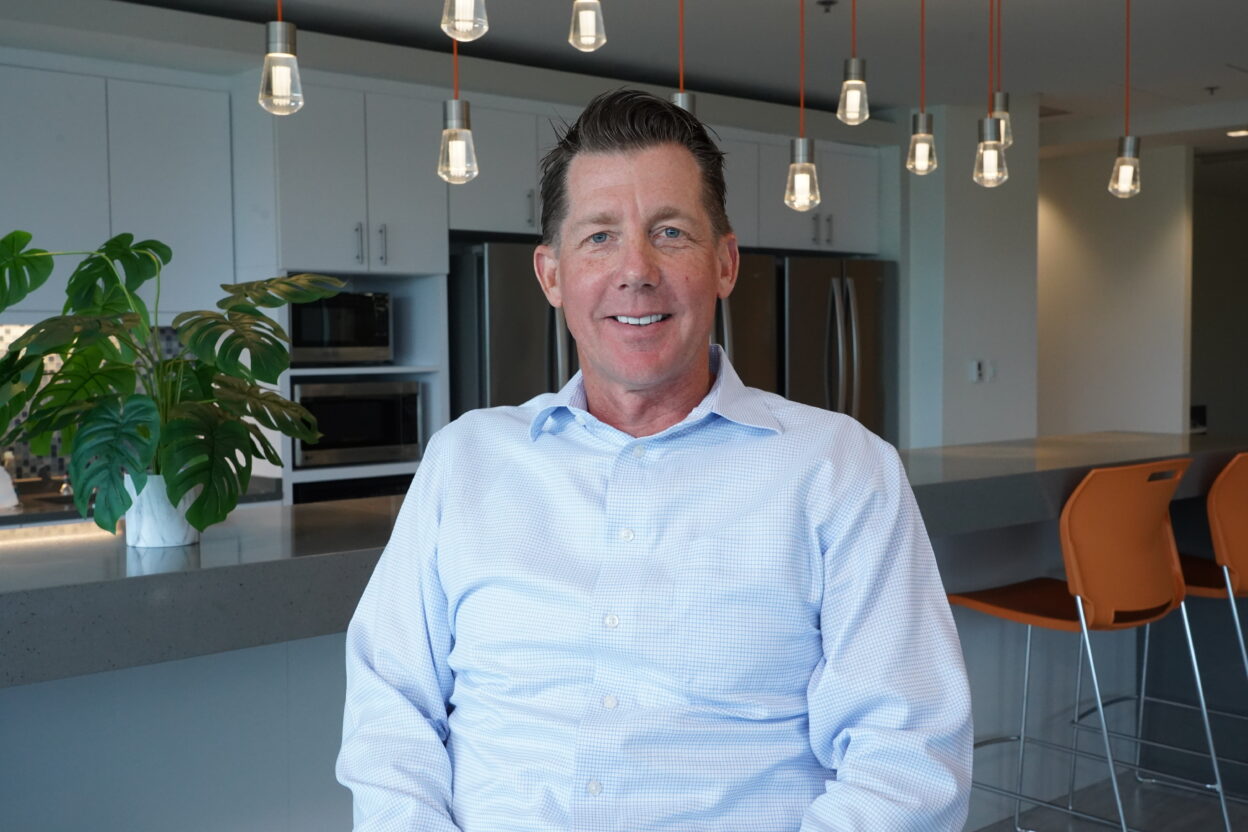
“We can’t do this alone as physicians and clinical researchers,” Stanton said. “We need everybody to step up and make a difference. We can change the course of this disease, but we need everyone’s help.”
What can you do? Join the conversation. Ask questions. Share your stories, your fears, and your hopes. Get tested, volunteer to participate in potentially life-saving studies, and make the kind of daily lifestyle choices that support a healthy brain.
“Get enough high-quality sleep, eat a balance and nutritious diet, exercise regularly, drink plenty of water, be social – anything that we can do to reduce our risk is important,” noted K2 Community Connector Bridget Monroe.
“This disease takes so much from families,” Val Demings said. “I really think the time is now and the time is right for Central Florida as a community to come together and share those painful moments, share those fears, those uncertain moments; but also what we do best — share the hope that we feel about the progress that we can make with this dreadful disease.”
For more information on assessing your risk for dementia, testing for cognitive impairment, or enrolling in a study to delay or slow the progression of Alzheimer’s disease, visit k2med.com/


